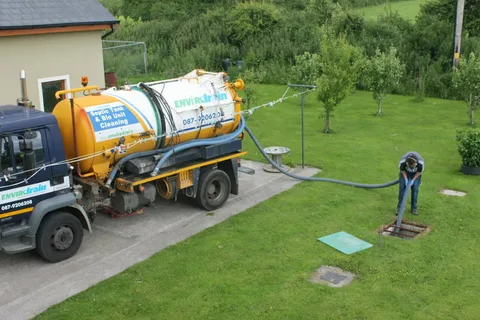How to Properly Clean Your Sump Pit and Septic Tank Without Causing Damage

Regular sump pit and septic tanks cleaning is essential for maintaining a healthy and efficient wastewater system. Over time, sludge, debris, and waste build up in these systems, leading to blockages, foul odors, and potential damage. If not cleaned properly, you risk damaging pipes, contaminating the environment, and facing costly repairs. By following the right cleaning methods, you can ensure the longevity and efficiency of your sump pit and septic tank.
Understanding the Importance of Cleaning
A sump pit collects excess water from your basement or crawlspace, preventing flooding. If it becomes clogged with debris, it can fail to function properly, leading to water damage in your home. A septic tank, on the other hand, stores and processes household wastewater. Without regular sump pit and septic tanks cleaning, solid waste accumulates, causing backups and foul odors.
To prevent these issues, regular maintenance is crucial. However, improper cleaning methods can do more harm than good. Here’s how to clean your sump pit and septic tank safely and effectively.
Steps to Properly Clean Your Sump Pit
Turn Off the Power
If your sump pit is connected to an electric sump pump, always disconnect the power before cleaning. This prevents electrical hazards and ensures safety while working inside the pit.
Remove the Sump Pump
Carefully remove the sump pump and inspect it for any debris or damage. Clean the pump using water and a mild detergent before placing it back.
Remove Debris and Sludge
Use a wet vacuum or a bucket to remove standing water from the sump pit. Then, clear out any accumulated debris, sludge, or silt from the bottom of the pit.
Scrub the Sump Pit Walls
Using a stiff brush and a mixture of warm water and vinegar, scrub the walls of the sump pit to remove bacterial growth and odors.
Reinstall the Sump Pump
After thoroughly cleaning the sump pit, reinstall the sump pump and ensure that it is properly connected before restoring power.
Steps to Properly Clean Your Septic Tank
Schedule Regular Pumping
Septic tanks should be pumped every 3-5 years to prevent solid waste buildup. Hiring professionals for sump pit and septic tanks cleaning ensures a thorough and safe process.
Avoid Harsh Chemicals
Using bleach, drain cleaners, or other harsh chemicals can kill the beneficial bacteria in your septic tank, disrupting the natural breakdown of waste. Opt for enzyme-based cleaners to maintain a healthy bacterial balance.
Inspect for Leaks and Damage
While cleaning, check for cracks, leaks, or unusual smells that may indicate system failure. Addressing small issues early can prevent costly repairs.
Use Water Wisely
Excessive water usage can overwhelm the septic system, causing backups. Reduce water waste by fixing leaks, using water-efficient appliances, and spacing out laundry loads.
Conclusion
Proper sump pit and septic tanks cleaning is essential for preventing system failures, unpleasant odors, and costly repairs. By following the correct cleaning methods, you can maintain a well-functioning wastewater system without causing damage. For professional and reliable cleaning services, ZENITH CREW ELECTROMECHANICAL & MAINTENANCE COMPANY offers expert solutions to keep your sump pit and septic tank in top condition.
Trust ZENITH CREW ELECTROMECHANICAL & MAINTENANCE COMPANY for efficient and hassle-free cleaning services that ensure your system’s longevity and performance!